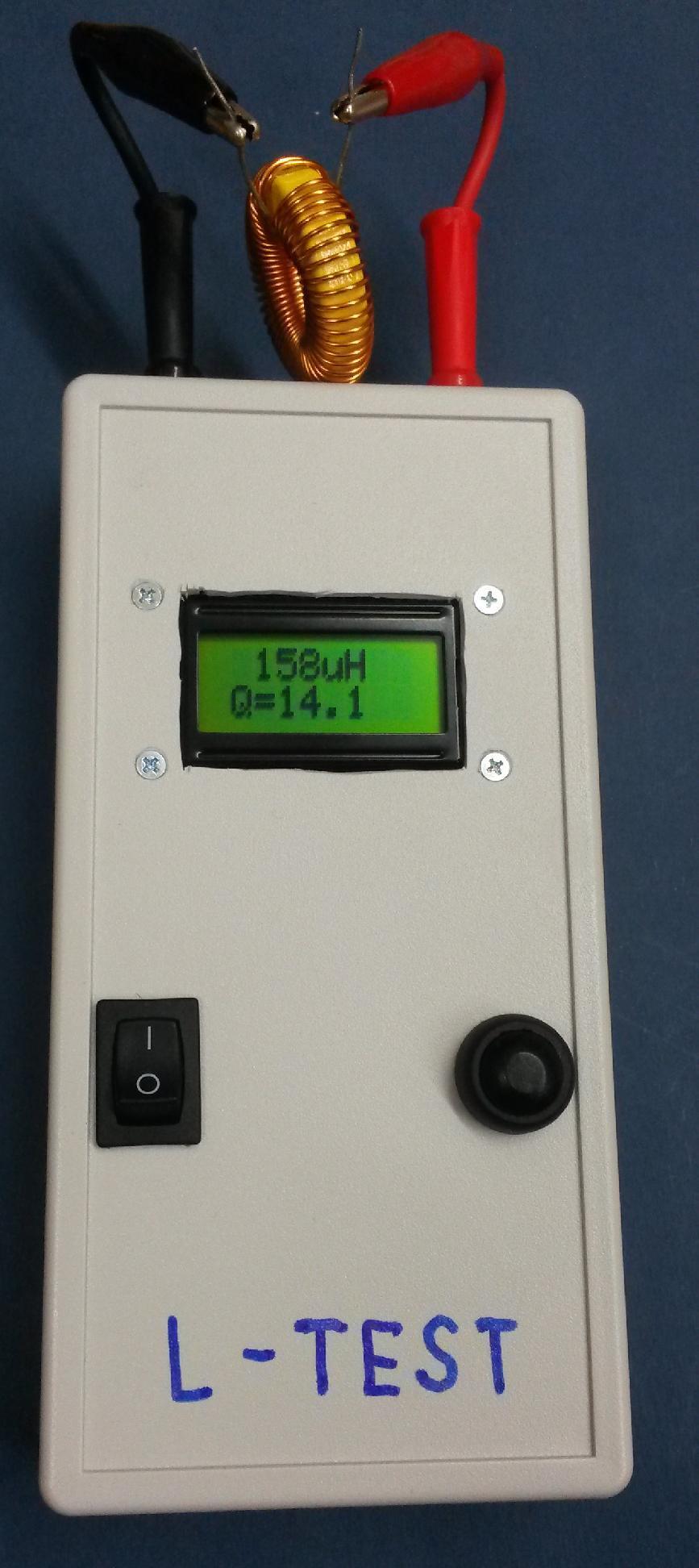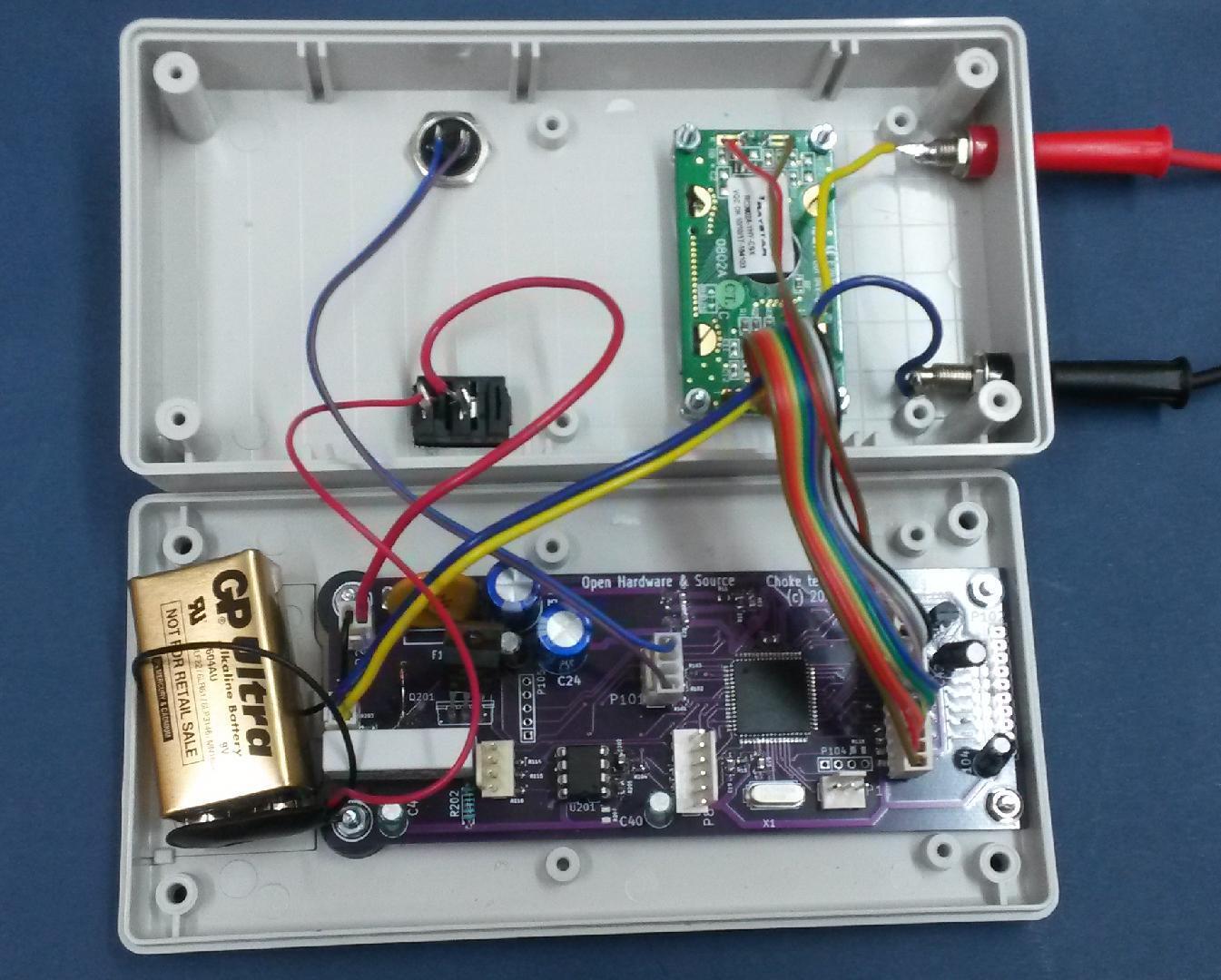A simple choke tester measuring inductance and Q-factor based on Atmega128 (Open hardware and open source DIY hobby construction)
I developed a simple tester of inductors, which measures the inductance and Q-value by damped oscillations after a charged capacitor is connected to the inductor. I found some inspiration at Danyk's page, however, I decided not only to count the number of oscillations but to do more measurements. I decided to use ATmega128 for this device, which might be an overkill, but then I was able to re-use a previously designed board to a large extent, to save some work.The tester connects a charged high-Q capacitor (polypropylene) C201 to the DUT inductor via a mosfet Q201 with very low R_DS_on and low enough gate threshold voltage to be directly controlled from the MCU. The oscillating voltage is tested on the positive input of the built-in analog comparator of the MCU, while the negative voltage of the comparator is connected to a DAC output realized by an internal timer-controlled PWM, a RC filter, and an op-amp buffer. Note that the device cannot be used for in-circuit measurements due to the 5V voltage the capacitor is charged to.
The software then uses analog comparator interrupts and a timer to measure the period of the oscillations, which yields the inductance. To measure the Q-factor, the number of oscillations with amplitude over a certaing voltage threshold is measured for two values of the threshold voltage V0 and V (program-controlled by the PWM). Then Q = PI *(difference in the number of oscillations) / ln(V0/V). The accuracy od the device is not comparable to professional LC meters, but it is quite usable for hobby purposes.
The open hardware schematics is here in PDF and a complete Kicad design including gerbers is here in ZIP. The open source firmware source code is choketester.c and binary for flashing is choketester.hex


My Electronics page
My hobby page
My main page with e-mail contact
TOP of my family pages